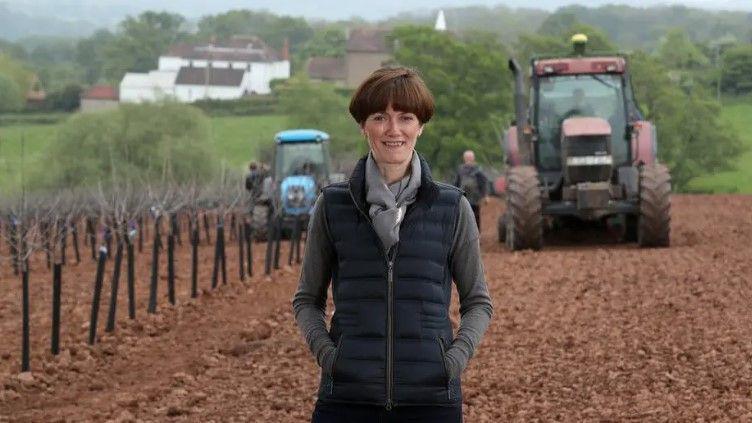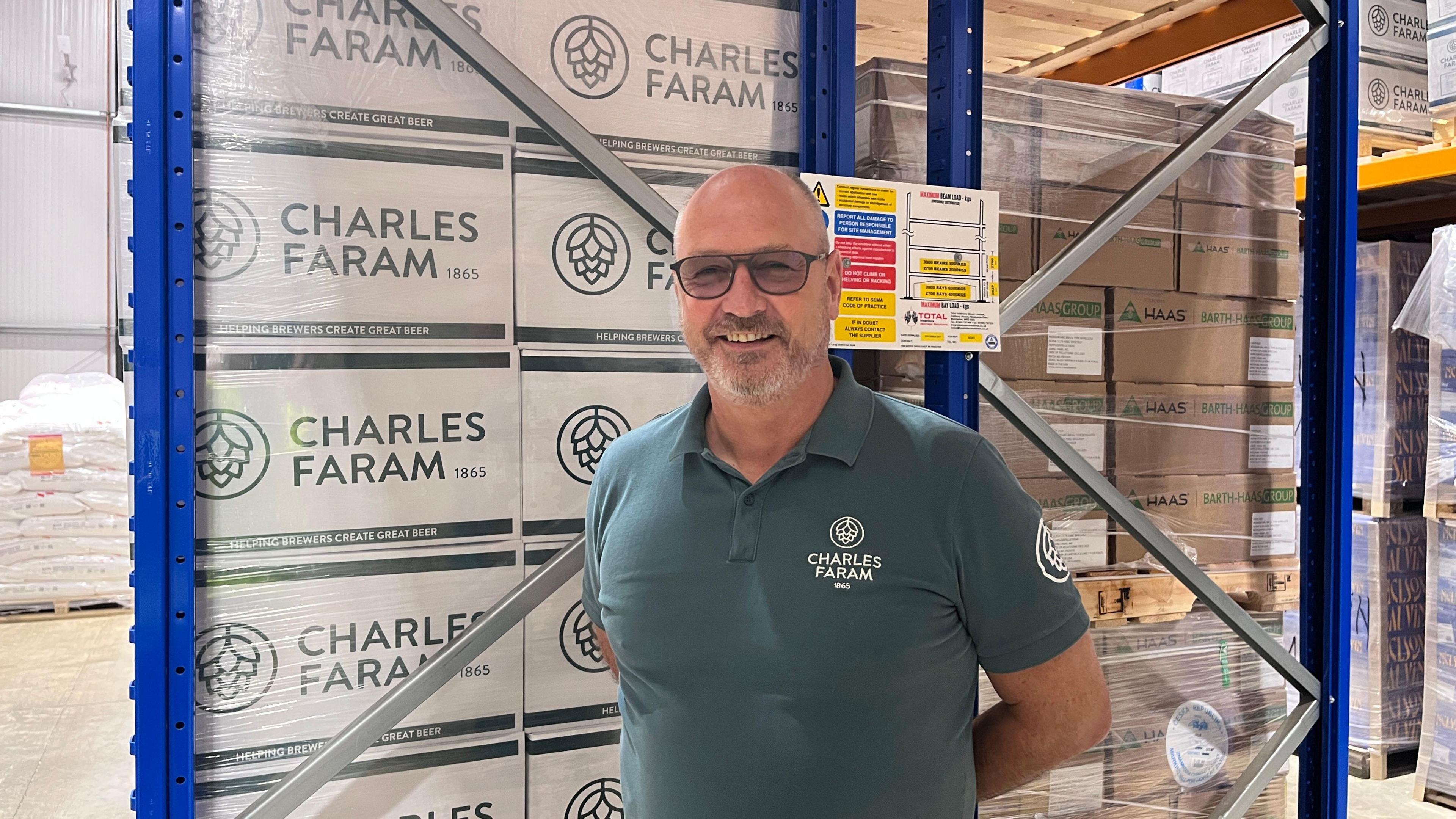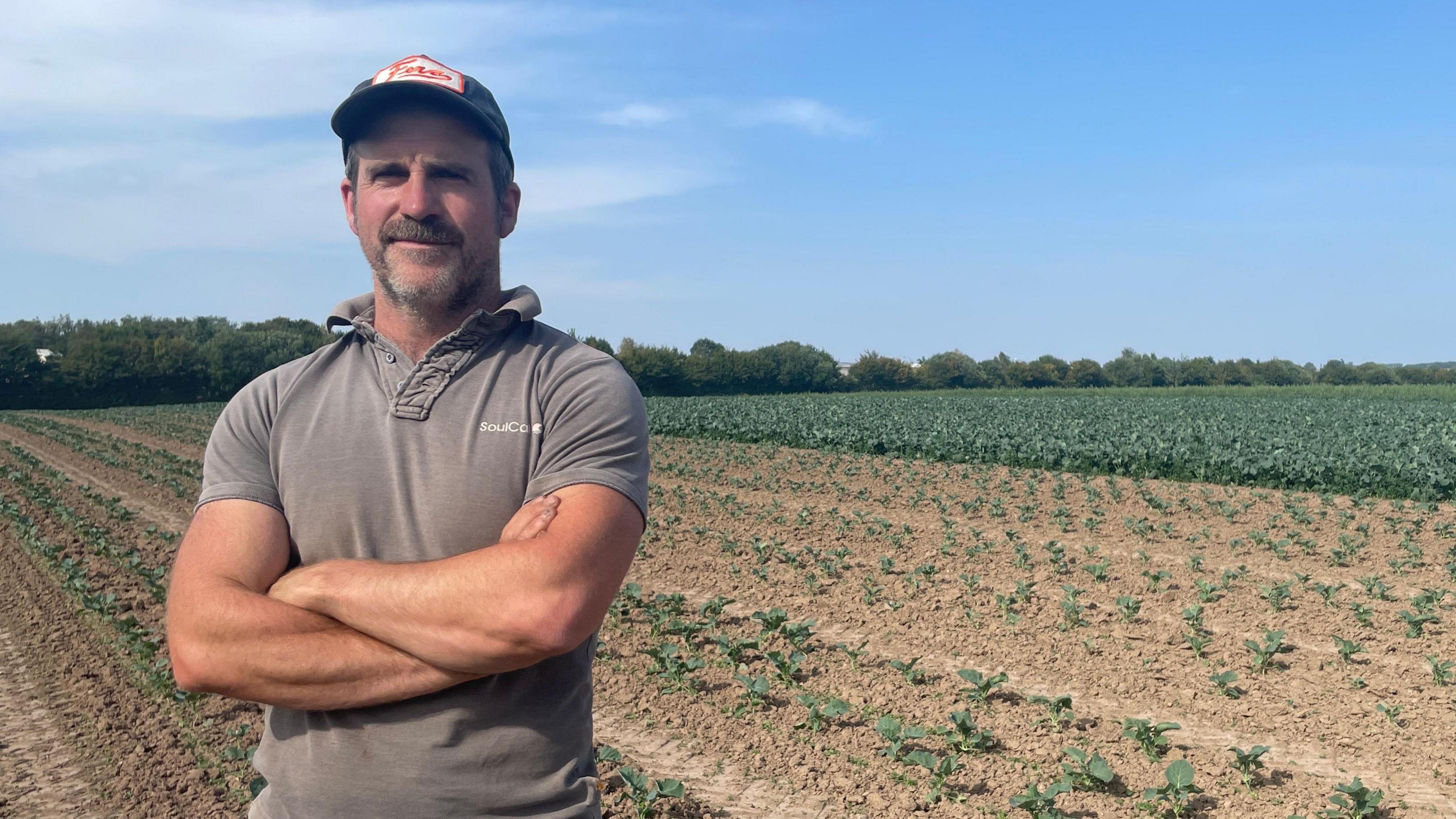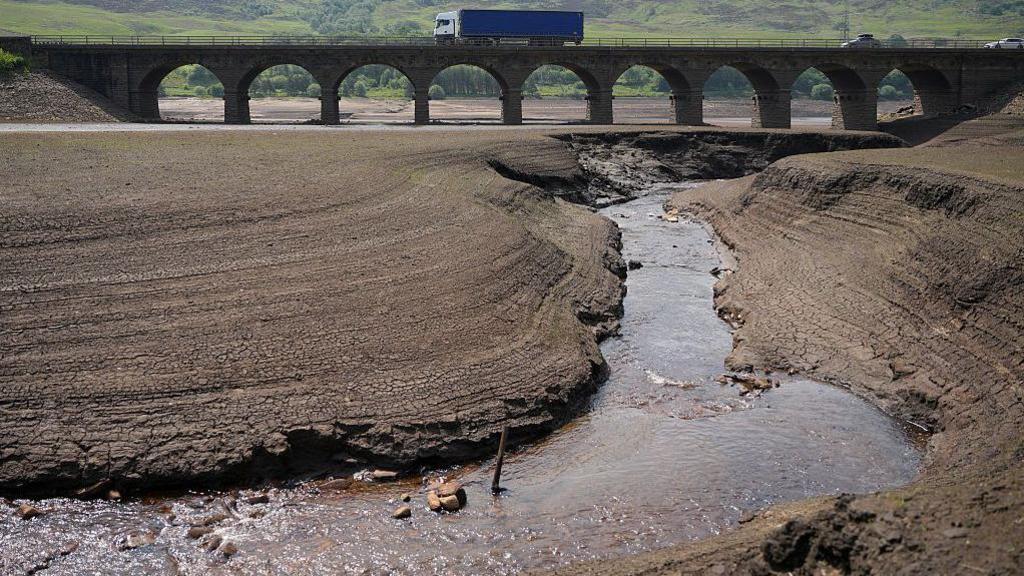Hop harvests under threat after dry summer

Farmer Ali Capper says this year's drought could be disastrous for her harvest
- Published
Drought conditions could cause a hop shortage, threatening a major part of the farming landscape in Herefordshire and Worcestershire, farmers say.
Hop farmer Ali Capper from Suckley, on the border between the two counties, and said this year's yield could be down by as much as 50%.
"We've got a crop that is looking fairly unhappy," she said, adding she was likely to make a loss due to the shortfall.
Paul Corbett, the managing director at hop supplier Charles Faram & Co, said prices needed to be kept at a reasonable level to avoid costs being passed on to beer drinkers.
Is the Great British hop crop under threat?
"The last thing we need to do is put more expense towards brewers, who are already struggling, to make their beer more expensive," he said. "If beer's more expensive, people can less afford it and then we sell less.
"The key bit is to try and keep the prices fair to both the growers and to the brewers."

Paul Corbett is the managing director at Charles Faram & Co
Ms Capper said a poor yield would be particularly hard-hitting after problems caused by the Covid pandemic.
"We've still got a Covid-hangover. During Covid, the pubs across the world closed for 10 months and that created a surplus of hops in warehouses, in breweries, across the world. That has been very painful for us," she said.
This year's shortfall could also affect future crops, she added, as hops were perennial plants.
"If it's really put under stress this year, it's quite likely that will show in next year's crop as well."
Ms Capper said it was difficult to predict exactly how badly production would be hit until the harvest began.
The loss of income was also making it more difficult to invest in new technology to improve yields, the farmer said.
"We need better returns in order to be able to make investments when we're suffering. Prices have pretty much been at a standstill for four or five years and we've had to face huge inflation," she added.
Related topics
- Published18 August

